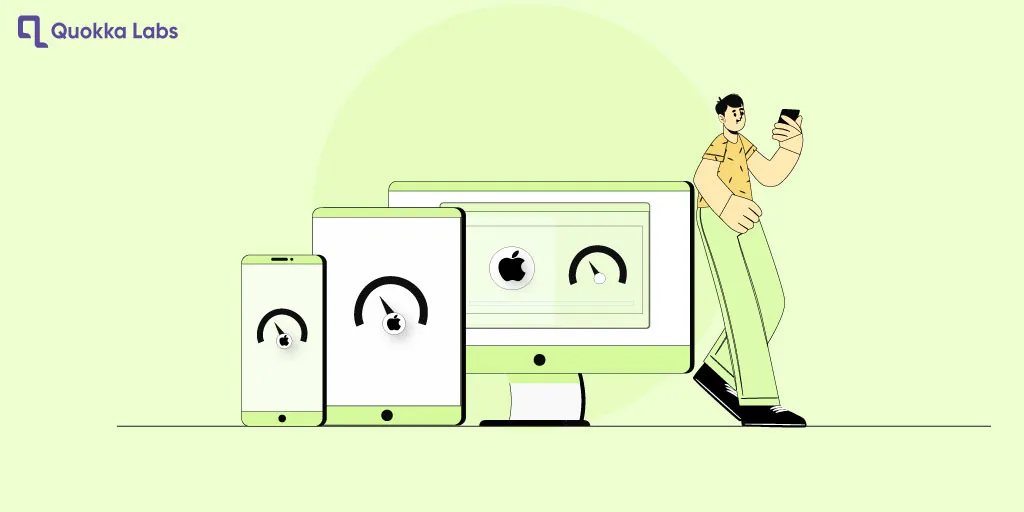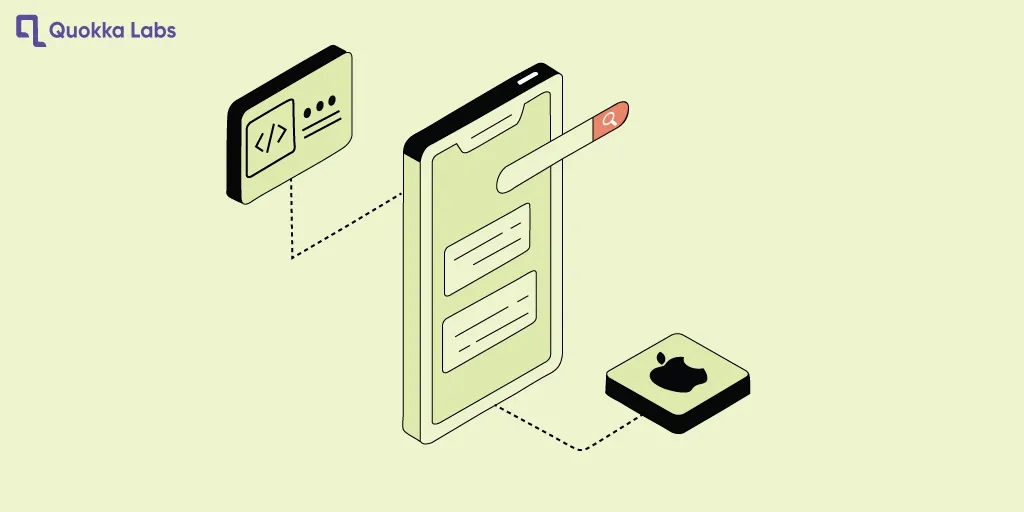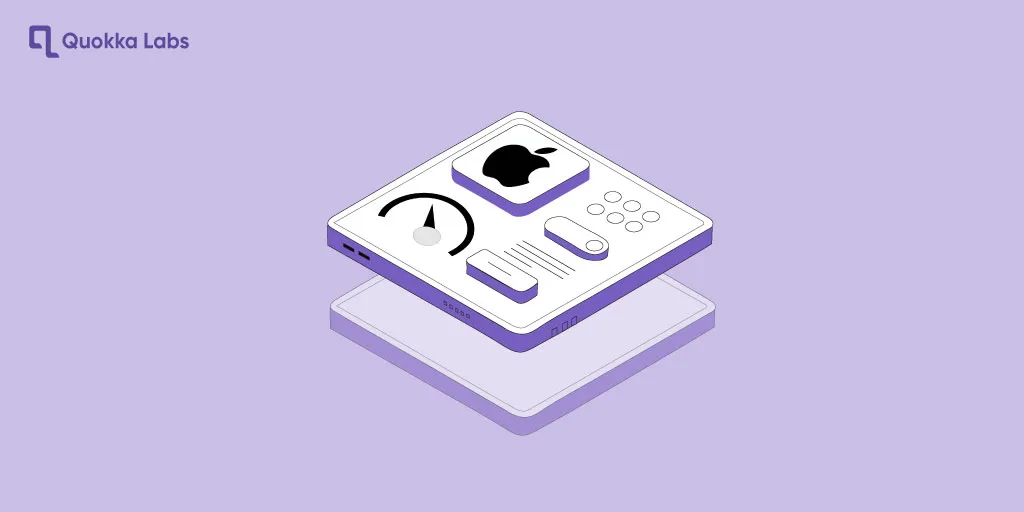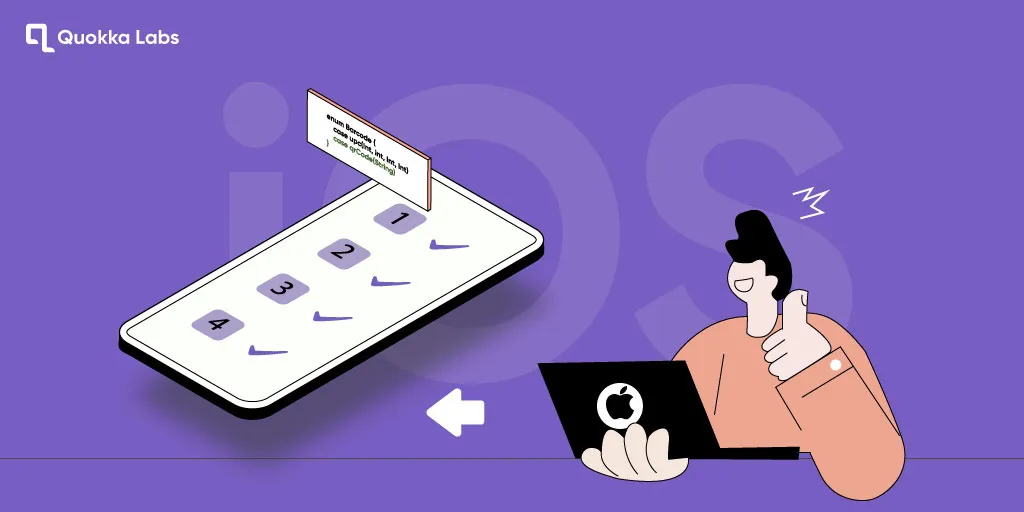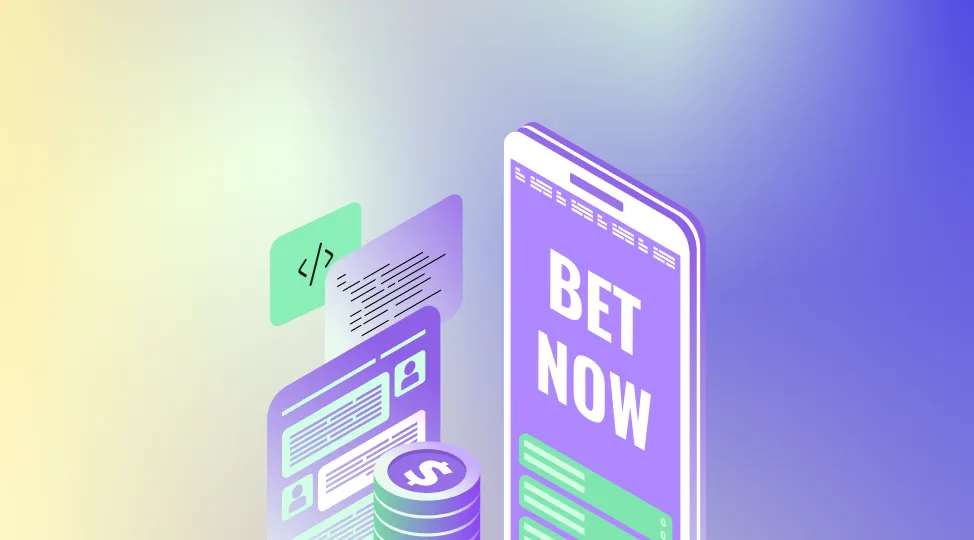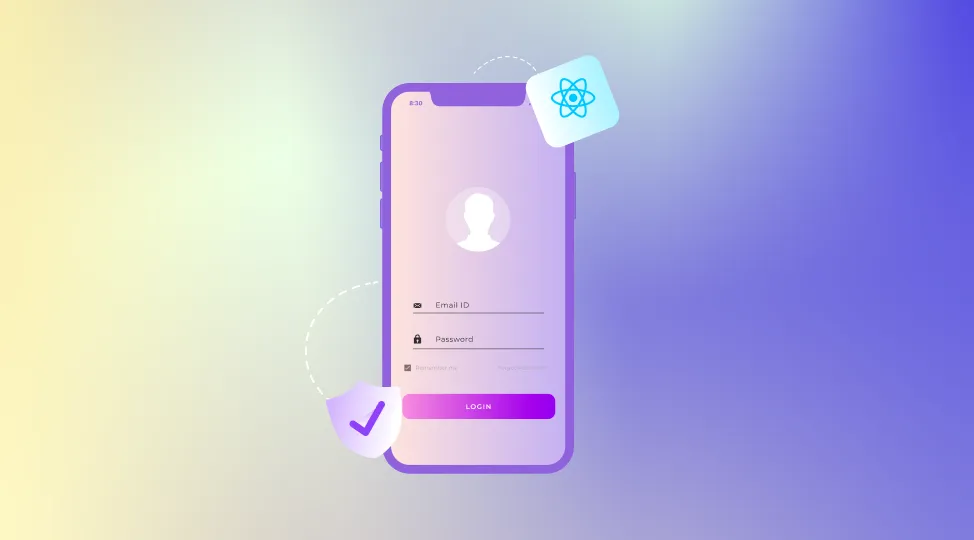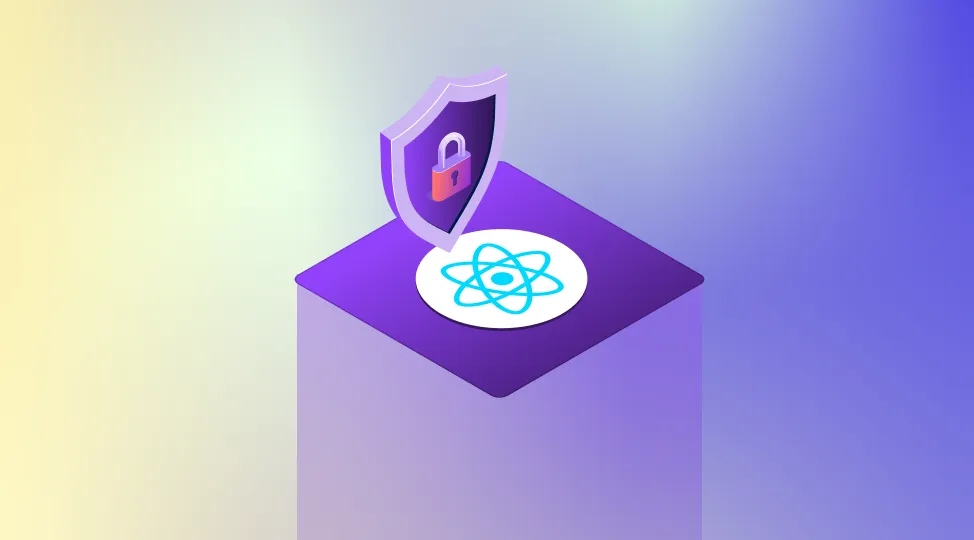The iOS ecosystem offers a lucrative market for businesses and entrepreneurs seeking to connect with a highly engaged audience. However, understanding the financial implications of starting an iOS app development project is vital for success. The question of "How much does iPhone/iOS app development cost?" can be tricky, and that's precisely why we've crafted this detailed analysis, especially if you’re developing an app for iPhone and want realistic budgeting from day one.
With years of experience as an iOS app development company, we aim to provide a clear and transparent breakdown of the factors influencing the cost of building an iOS app. We aim to provide you with the necessary information to make informed decisions that match your project goals and budget. Whether you're a startup founder, a seasoned entrepreneur, or an individual with a brilliant app idea, this post will give you the knowledge to choose the best cost-friendly company without asking for a second opinion. The iPhone app development cost varies widely, and knowing what drives it is key to planning smartly.
After all, the global mobile app market is projected to reach $614.4 billion by 2026, and AI and ML are also going to rule the market, just like ChatGPT and Gemini and the upcoming OpenAI Sora; it's best to contact iOS app development services and develop future-ready apps today!
In brief, iOS or iPhone app development costs typically range from $15,000 to $120,000, depending upon the app type and its complexity, and the cost for iPhone app development is ultimately shaped by the choices you make around scope, features, and team. The iPhone app development cost can move up or down based on these variables.
The Average Cost of iOS App Development & Timeline
The following table provides a concise breakdown of the iOS app development cost and timeline.
| App Type |
Development Timeline |
Development Cost |
| Simple App |
1 to 2 Months |
$15,000 – $55,000 |
| Mid Complex App |
3 to 4 Months |
$55,000 – $1,00,000 |
| Highly Complex App |
5 to 6 Months |
$1,00,000 – $2,00,000+ |
However, various factors determine the cost of iPhone app development. Explore our article to uncover all the intricacies associated with the iPhone/ios app development price
Now, let's move forward and see the key points that affect the cost of the iOS app.
Key Factors Influencing iOS App Development Cost
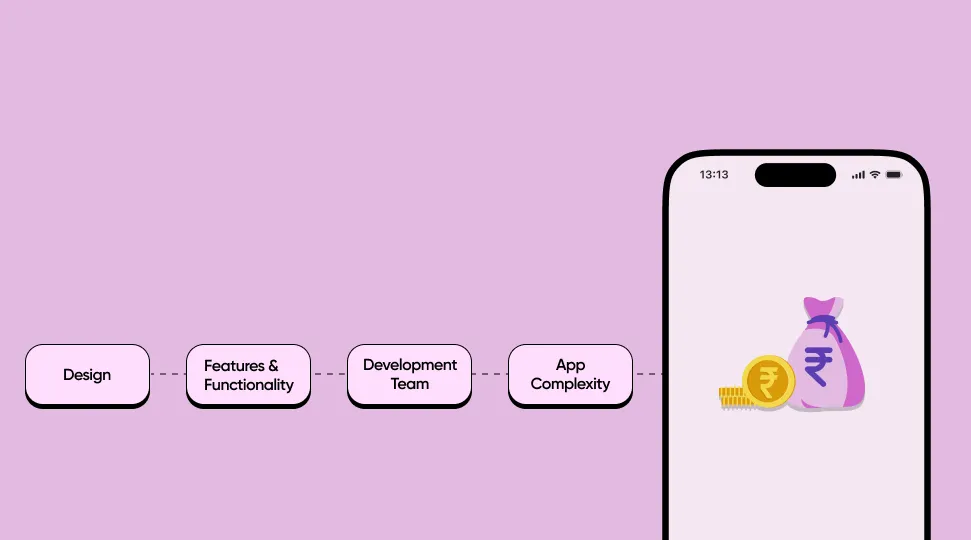 The cost of developing an iOS app isn't a one-size-fits-all answer. It's shaped by an interplay of critical factors, the most prominent being:
The cost of developing an iOS app isn't a one-size-fits-all answer. It's shaped by an interplay of critical factors, the most prominent being:
App Complexity
-
Simple Apps: These apps offer a core set of features with straightforward user interactions. Think of basic calculators, note-taking apps, or simple informational apps. Their streamlined nature generally translates to lower development costs.
-
Medium-Complexity Apps: Stepping up in complexity, these apps go beyond the basics. They often necessitate custom design elements, third-party integrations (e.g., payment gateways, social media logins), and more intricate data management. Naturally, this increased scope leads to higher development costs. Examples include e-commerce apps or social networking platforms.
-
Complex Apps: At the top tier, we have apps boasting cutting-edge features like Augmented Reality (AR), Virtual Reality (VR), advanced machine learning, or heavy reliance on custom backend infrastructure. These apps demand significant development time, expertise, and resources, resulting in the highest cost category. Think of sophisticated gaming apps or enterprise solutions with real-time data processing.
Development Team
-
In-House vs. Outsourcing: Building an in-house iOS development team gives you greater control but comes with overhead costs like salaries, benefits, and workspace. Outsourcing to an app development agency or freelancers can be flexible, but vetting their experience and communication style is crucial.
-
Location of Developers: iOS developers' hourly rates fluctuate significantly based on their geographical location. iOS developers in areas with higher living costs tend to charge more per hour.
-
Team Size and Specialization: The size of your development team and their required specializations directly impact the project's cost. Apps with complex features may necessitate UI/UX designers, backend developers, iOS experts, QA testers, and iPhone App Development Company project managers – each contributing to the overall expense.

Features and Functionality
-
Core Features: The very heart of your app – its fundamental features – greatly influences cost. More features and greater sophistication within those features drive up the development time and resources needed.
-
User Authentication/Profiles: Enabling secure login systems or creating detailed user profiles adds development time and potentially necessitates secure data storage, increasing costs.
-
In-App Purchases or Subscriptions: Implementing these monetization models requires integrating with payment gateways and potentially developing backend systems to manage subscriptions, which adds complexity and costs.
-
Location-Based Services: Harnessing device GPS data for location tracking or mapping features necessitates additional development effort and potential integration with third-party mapping services.
-
Offline Functionality: Allowing your app to function even without an internet connection often demands careful data synchronization strategies and a more robust development approach.
Design (UI/UX)
-
UI Design Complexity: Adhering to Apple's Human Interface Guidelines with a standard UI is less costly than a heavily customized design requiring bespoke elements, animations, and intricate layouts.
-
UX Optimization and Usability Testing: Investing in thorough user experience (UX) design and testing ensures a polished and intuitive app. However, this process can be time-intensive and influence development costs.
iOS App Development Cost Estimation - Approach
After understanding the factors that influence the average cost of iOS app development, let's explore common approaches used to estimate iOS app development price and iPhone app development cost:-
Hourly Rate Model
-
This approach centers around estimating how many hours the project will likely take and multiplying that by the average hourly rate of your chosen developers (in-house or outsourced).
-
It's a good fit if you have a clear project scope but anticipate potential changes or adjustments along the way, offering some flexibility.
Feature-Based Model
-
Here, you dismantle your app into its distinct features (e.g., login system, product listings, search functionality, etc.). Each feature is then assigned an estimated cost based on its complexity, which influences the cost of building iOS App.
-
This method provides a more granular view of costs and can aid in feature prioritization if budget is a concern.
Tiered Pricing
Many development agencies offer pre-defined packages based on app complexity (simple, medium, complex). Each tier has a set price range or a fixed price.
- This option suits those wanting greater predictability in budgeting but potentially sacrifices some flexibility in customization.
iOS App Development Cost- Based on App Type
While costs vary based on factors outlined earlier, let's explore common price ranges of app types to provide a more tangible understanding of the cost of creating an app for iPhone or iOS.
Simple Apps
-
Price Range: $15,000 - $50,000
-
Suitable Project Examples: Basic informational apps (company brochures, portfolios), Calculators, simple note-taking tools, Apps with limited user interaction and no backend data storage
Medium-Complexity Apps
-
Price Range: $50,000 - $120,000
-
Suitable Project Examples: E-commerce apps with basic product listings and payment functionality, Social networking apps with user profiles and messaging, Apps integrating location-based services or third-party APIs
Complex Apps
-
Price Range: $120,000 +
-
Suitable Project Examples: Games with sophisticated graphics and real-time interactions, AR/VR experiences, Enterprise apps with heavy data management and custom backend systems, Apps that process sensitive health or financial data
Hidden iOS App Development Cost
Beyond the initial development costs, it's essential to be aware of ongoing expenses that can catch you off-guard if not accounted for in your budget:
Maintenance and Updates
-
Compatibility with iOS versions: Apple releases major iOS updates annually. Ensuring your app remains compatible with these updates requires testing and potentially code adjustments, leading to recurring costs.
-
Bug fixes and security patches: No app is immune to bugs or security vulnerabilities. Addressing these as they arise is crucial for keeping a positive user experience and protecting your app's reputation.
App Store Fees and Subscriptions
-
Apple's developer fees: To publish and maintain a presence on the Apple App Store, you'll need an annual Apple Developer Program membership costing $99.
-
Influencing iOS App Development Cost associated with listing and marketing the app: Creating compelling app store screenshots promotional videos and investing in app store optimization (ASO) or paid advertising contribute to your app's discoverability and overall success.
Backend Infrastructure and Support
If your app heavily relies on storing data, processing transactions, or connecting to external services, you'll need backend infrastructure like servers, databases, and APIs. Depending on your app's usage, these incur ongoing hosting, maintenance, and scaling costs.

iOS App Development Cost- Optimization Strategies
While iOS development inherently carries costs, smart strategies can help you get the most bang for your buck:
-
Clear Project Definition and Scope: A meticulously defined project scope prevents unnecessary features from creeping in, keeping costs in check. Document your core requirements and ruthlessly prioritize for efficient development.
-
Start with an MVP (Minimum Viable Product): Launch with your app's essential features. This allows you to gather user feedback, validate your idea, and iteratively add enhancements without a massive upfront investment. When developing an app for iPhone, this approach keeps early spending under control and reduces rework.
Leverage Pre-Built Components
-
Open-source libraries: Utilize the vast array of well-tested open-source libraries for standard functionalities rather than building everything from scratch. It saves precious development time and iOS App Development Cost.
-
UI frameworks: Apple-backed frameworks like Swift UI and third-party options can accelerate UI development, reducing the time needed to build custom interfaces.
Prioritize Thorough Testing
Invest in comprehensive testing throughout development. Catching bugs early is significantly less expensive than fixing them after release. This ensures a polished user experience and reduces negative reviews.
Consider Hybrid/Cross-platform Development
Hybrid frameworks (like React Native or Flutter) allow you to create apps that can install/run on both iOS and Android using a common codebase. This can be cost-effective, but carefully weigh the potential trade-offs in native performance and user experience.
How to Choose A Company for Your iOS Development Needs?
Selecting the right iOS development partner is a decision that can significantly impact the trajectory of your app project along with the iOS app development cost. Here's a deeper look at how to make an informed choice:
Assessing Developer Portfolios
-
Go beyond visual appeal: While polished designs are essential, dig deeper into the technical aspects of a developer's portfolio. Assess the complexity of their past projects, their proficiency in iOS-specific technologies, and whether they incorporate best practices for performance and security.
-
Seek out reviews and ratings: Scour platforms like Clutch, GoodFirms, or even Apple's App Store developer pages for honest reviews from past clients. These provide valuable insights into their work ethic, communication style, and ability to deliver projects on time.
Prioritizing Experience
-
Niche expertise: A developer with experience in your industry vertical (e.g., healthcare, finance, gaming) understands the unique requirements, potential regulatory hurdles, and how these elements factor into app development cost. This experience translates to faster development, more accurate estimations, and a higher likelihood of project success.
-
Feature-specific experience: If your app requires complex location-tracking, AR/VR integration, or sophisticated payment systems, prioritize developers demonstrating a track record of success in these areas. This expertise helps them anticipate potential complexities, directly influencing iOS app development cost and timeline.
Clear Communication and Transparency
-
Set outlooks from the start: Clearly outline your communication preferences (email frequency, weekly calls, etc.). Also, ask potential partners about their preferred project management tools and how they'll provide updates throughout development.
-
Pricing transparency: Request a detailed iOS app development cost breakdown, including any potential for variable costs or overages. Ensure you understand their pricing model, whether hourly, feature-based, or a fixed price.
-
Red flags: Beware of vague answers about iPhone app development cost, delays in responding to budget inquiries, or pressure to rush into a decision. A reliable partner should prioritize clarity and building trust.
Company Size and Structure
Is the agency's size a good fit for your project's scope? Large agencies may offer a broader range of expertise, but smaller teams can be more agile and personalized.
-
Cultural fit: Do their values and work style align with yours? This factor can significantly impact how smoothly the collaboration unfolds.
-
Intellectual property protection: This is especially crucial if your app involves unique concepts or trade secrets. Clarify how your IP will be protected during and after the development process.
By diligently addressing these factors, you'll be well on your way to finding the ideal iOS app development partner to help transform your idea into a successful reality.
iPhone iOS App Development Cost Analysis & Breakdown: Final Snippets
Understanding the multifaceted nature of iOS development cost is a powerful tool. By being informed about the factors influencing price, you gain leverage in budgeting, feature prioritization, and selecting the most suitable development partner.
Remember, while cost is a crucial consideration, it should never overshadow the importance of quality. A well-executed iOS app offers a seamless user experience, adheres to Apple's high standards, and has the potential to generate meaningful returns on your investment.
Striking the balance between cost-effectiveness and quality craftsmanship is the main factor in a successful iOS app launch. With your knowledge of iOS app development cost factors, you're better equipped to make those strategic decisions and bring your app vision to the thriving iOS marketplace, while also keeping the cost for iPhone app development aligned with long-term business value.
If you're ready to start your iOS app development journey, feel free to reach out for a consultation. Let's discuss how to transform your idea into a reality – on time and within your budget with our iOS app development services.

Frequently Asked Questions
How much does iOS app development cost?
The cost of developing an iOS app can vary widely depending on complexity, features, and the development team's location. However, it typically ranges from $15000 to $120,000++. Also, if you need a proper iOS app development cost estimation, we suggest consulting with an experienced iOS app development company like us.
How much does it cost to hire an iOS app developer?
The cost of hiring an iOS app developer can vary based on experience, location, and project complexity. On average, it ranges from $50 to $200 per hour or a fixed project rate starting from $5,000.
How much does it cost to develop an iOS mobile app in India?
The cost of developing an iOS mobile app in India can vary depending on its complexity and features, but it typically ranges from around $10,000 to $50,000+.
Are iOS developers in demand in India and USA?
Absolutely! iOS developers are in high demand in India and USA due to the growing popularity of Apple devices and the increasing demand for iOS apps in the global market.
How much does putting an app on the iOS store cost?
Putting an iOS app in the app store costs $99 per year. Before that, you have to register yourself as a developer.
Tags
iPhone App Development Cost
iOS App Development Cost

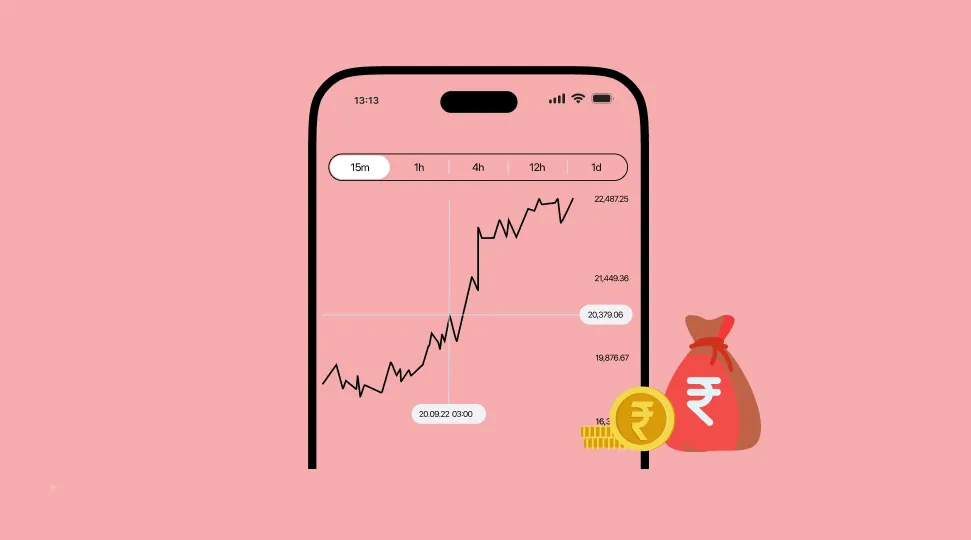

 Facebook
Facebook
 Twitter
Twitter
 LinkedIn
LinkedIn
 Pinterest
Pinterest
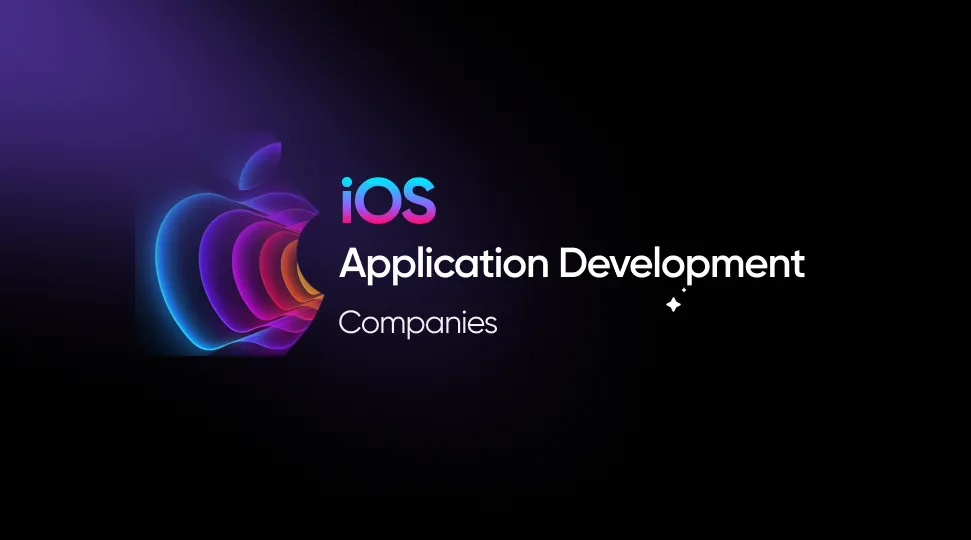
 The cost of developing an iOS app isn't a one-size-fits-all answer. It's shaped by an interplay of critical factors, the most prominent being:
The cost of developing an iOS app isn't a one-size-fits-all answer. It's shaped by an interplay of critical factors, the most prominent being:
